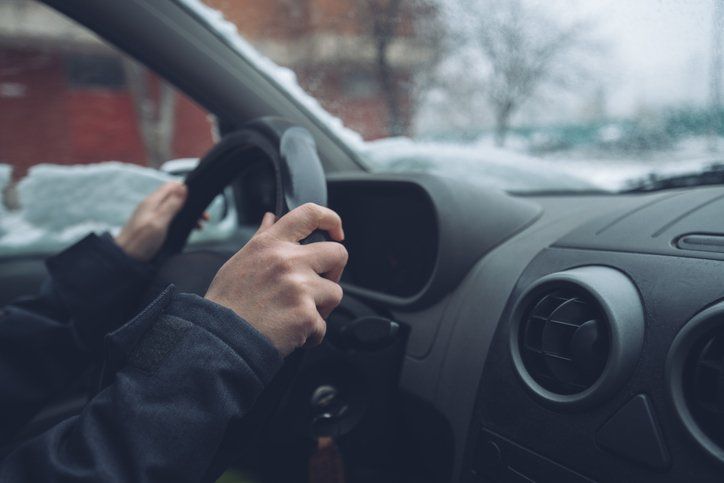6 Ways to Make Winter Driving Safer
An average of 1,705 people are killed annually in car accidents due to snow, sleet, or ice-covered roads, according to the Federal Highway Administration, and over 130,000 more are injured. Driving conditions often change quickly during the winter months, so it's important to be as prepared as possible to reduce your risk of being involved in an accident.
1. Stay Up-To-Date on Vehicle Maintenance
One of the most important things you can do to keep yourself safe on the road in the winter is ensure your vehicle is current on all routine maintenance. Take your vehicle to a mechanic for a full inspection before the snow hits to have them check for anything you should fix before you head out on treacherous roads.
Make sure your oil has been changed
recently and that other fluids, including coolant, power steering,
brake, and transmission fluid, are topped off. Check for any leaks,
worn wiper blades, dead bulbs in headlights or taillights, and worn
brake pads.
2. Check Your Tires
Check the treads on your tires to make sure you'll have a good grip on slippery roads. Replace any tire with less than 2/32 inch of tread depth. An easy way to measure this is to insert a U.S. penny into the groove. If you can see all of Lincoln's head above the tread, you need a new tire. Make sure there are no cracks or divots in the rubber.
Check the pressure in your tires frequently in the winter. Know what inflation pressure the tire manufacturer recommends and re-inflate your tires as needed. Cold temperatures lead to lower tire pressure, which can increase the time it takes you to stop your vehicle.
3. Prepare for an Emergency
Keep an emergency kit in your vehicle with a flare, flashlight, blanket, ice scraper, spare tire, and first aid kit. You can also put a bag of salt or cat litter in your trunk to use if your tires need some extra grip if you get stuck in snow, ice, or slush. Not to mention the bag gives the back end extra weight so you're less likely to fishtail.
4. Clear Off Your Car
Good visibility is critical to you and other drivers. Take the time to clear your car off completely before heading out on the roads. Use a snow brush or broom to clear off the top of your vehicle. Snow and ice flying off the roof of your car can impair other drivers' visibility and cause a potentially fatal accident.
Don't forget about your exhaust pipe - if it's clogged with snow it could cause a dangerous carbon monoxide leak in your vehicle.
5. Plan Your Route
Check the weather and road conditions before driving so you know what to expect. Allow yourself plenty of extra time to reach your destination in the winter, even if the roads are clear. Weather conditions can change quickly in the winter, and it's important to feel unrushed so you can concentrate on safe, defensive driving.
Use a GPS or keep a map in your vehicle to plan an alternate route in case a road you'd normally take is closed due to inclement weather.
6. Watch Your Speed
Winter is no time to be driving at fast speeds. Snow or ice-covered roads can make your vehicle take up to 10 times longer to stop. You should decrease your speed by 30 to 50 percent of how fast you would go if the roads were in perfect condition. Stay far behind other vehicles, especially large trucks that won't be able to stop quickly.
No amount of preparation can eliminate the chance of being involved in an accident. Other drivers are unpredictable, and even the best drivers can find themselves severely injured due to a weather-related accident.
Indianapolis personal injury attorneys Wegner & Associates can help you determine if you might be entitled to financial compensation for your medical bills, lost wages, and pain and suffering if you or a loved one has been injured in a winter weather-related vehicle accident. Contact ustoday to set up a free consultation to discuss your case.

